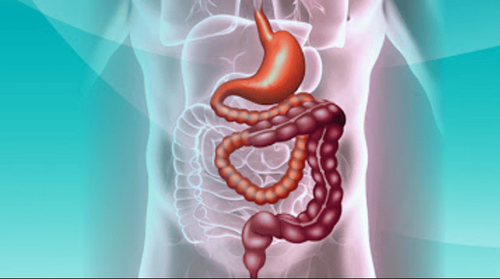This is an automatically translated article.
Willpower and willpower has always been a mystery that people want to discover in life. A person's will can be affected by many different factors, including the brain and daily living habits.
1. What is willpower and how does it work in the brain?
In essence, willpower is the mental ability to resist temptations or bad habits so that you can achieve your long-term goals. According to experts, willpower is a response that comes from both the brain and the body.
Normally, the prefrontal cortex (the part of the brain located just behind the forehead) is the part that helps us do things like make decisions, regulate behavior. Human will and willpower will be controlled by this part of the brain.
Therefore, in order to have the will and make the right decision for something, our prefrontal cortex needs to be carefully taken care of. To do this, you should provide your body with good nutrition and get enough sleep so that your brain has enough energy to perform its tasks, then your will is clear.
Over the centuries, human willpower in life has always carried a huge spiritual message. Willpower is often associated with practical skills that are neutral and help people control themselves. Therefore, will is sometimes understood with other meanings such as determination, self-discipline or self-control.
However, psychologists describe willpower and willpower in more specific ways:
The ability to suppress gratification, resist short-term temptations to achieve goals long-term. The ability to suppress an unwanted thought, emotion, or impulse. The ability to control cognitive behavior in a more positive direction instead of having negative emotions such as anger or jumping to conclusions. Consciously make an effort to align yourself with good habits.
2. Will human willpower and willpower be exhausted?
In general, there are 2 main theories in the study of human will power in life, including:
2.1. Finite theory of human will
Researchers say your willpower runs out once your body goes on strike. Will is seemingly finite and can be exhausted when people use it.
For example, after a day of working with so many things that require your determination, there comes a time when you yourself will not be able to resist any temptation anymore because you have used up all your willpower. mine.
2.2. Infinite theory of human will
The infinite theory holds that human will and will power are like a muscle. The more you practice it, the more your willpower grows. Successfully resisting temptations over and over again can help strengthen your will and drive.
But over the years, a number of studies have changed the understanding of how will power works in life. In fact, a lot of evidence shows that your beliefs about willpower will influence the results of your actions.
If you believe that human will and energy are limited, this can make it difficult for you to achieve your long-term goals. However, if you yourself believe that willpower is built in the same way that we train our muscles, then your chances of achieving your goals will be much higher after a challenging day. This means that willpower itself is sometimes less important than your own personal beliefs about it.

Sức mạnh ý chí của con người trong cuộc sống là rất lớn
3. How are will beliefs related to mental health?
It's really not surprising that willpower is closely related to people's mental health. A study that looked at the beliefs and willpower of people with diabetes found that patients with low will often find it harder to control their health and are at higher risk for complications.
In another study, people with limited willpower beliefs consumed more unhealthy foods, had more difficulty managing stress, and even procrastinated more toward their decisions. self.
4. How to strengthen willpower and willpower?
You can apply some of the following strategies to help increase your willpower and willpower in life:
4.1. Increase stress tolerance by managing stress
Before we start increasing our stress tolerance, we need to learn how to manage our stress. When stress is high, your body must use up all its energy to help you act on instinct and make decisions based on short-term results. Your prefrontal cortex also gradually loses its energy when impacted by excessive stress.
According to experts, when we feel overwhelmed or tempted by something, you should stop and take a few deep breaths a few times. This can be a great start to help you manage your stress levels and improve your willpower and drive.
4.2. Believe in yourself
Sometimes, being self-affirming and believing in yourself can help you better control your willpower when you are about to run out of energy. For example, when you say to yourself, "I can't do it," this very thought can discourage you and possibly lead to bad habits.
Every time you tell yourself “I can't,” you inadvertently create a feedback loop to remind yourself of your limitations. Therefore, be consistent and tell yourself that it is entirely possible to reject unhealthy temptations and accept new, more positive change challenges.
4.3. Get enough sleep to increase brain energy
In fact, getting enough sleep can make a huge difference to how well the prefrontal cortex, which controls one's will and will, works.
Sleep deprivation (sleeping less than 6 hours a night) is a type of chronic stress that can impair the body and brain's energy use. The prefrontal cortex is particularly heavily affected and leads to a loss of control over brain regions that produce appetite and stress responses.
Therefore, getting enough sleep and focusing on improving sleep can help increase energy for the entire brain. Ideally, you should try to sleep from 6.5 to 7.5 hours per night to ensure both mental and physical health.

Ngủ đủ giấc giúp tăng cường năng lượng cho não bộ
4.4. Meditation
Meditation has been shown to be a method that can help increase the amount of willpower we have at our disposal, while improving focus, attention, stress management, and self-awareness.
You don't have to meditate all your life, because according to some studies, after only about 8 weeks of daily short meditation practice, the part of the brain that controls a person's will power in life has been improved. markedly good.
4.5. Exercise and build a healthy diet
Another great way to exercise willpower, making you a lot more resilient when dealing with stress is to exercise regularly. Exercise, including mind-relaxing exercises like yoga and high-intensity interval training, can have great benefits in training to strengthen your willpower.
In addition, what you put into your body also significantly affects the activity level of the prefrontal cortex that controls willpower. This is why nutrition is so important. Eating a diet low in processed foods can give your brain more energy and improve every aspect of willpower.
Exercise combined with good nutrition not only strengthens your will and energy, but also brings a more positive mood. In particular, exercise is known to be an effective way to make us happier through the release of endorphins. These endorphins tend to help reduce discomfort when you exercise, block pain sensations, and even increase feelings of euphoria.
Please dial HOTLINE for more information or register for an appointment HERE. Download MyVinmec app to make appointments faster and to manage your bookings easily.
References: webmd, healthline













